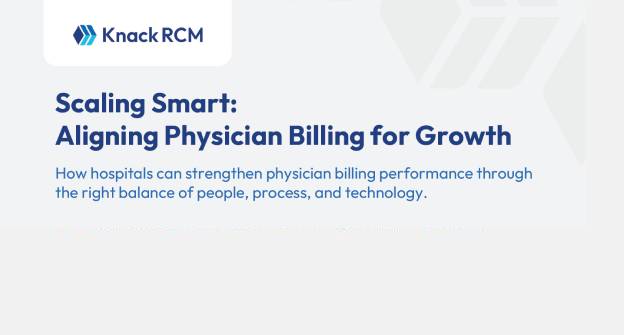BPO vs. RCM: The Hidden Costs of Choosing the Wrong Partner in DME Billing

If you work in Durable Medical Equipment (DME), you already know billing isn’t simple. From intake and eligibility checks to documentation, claims, and denial follow-up, there are dozens of steps where revenue can get stuck. Miss an insurance verification, forget to check “same or similar,” or skip prior authorization, and you’re looking at denied claims, slower payments, and a bigger cost to collect.
That’s why many DME suppliers turn to outsourcing. The big question is: who do you outsource to? Two of the most common models—Business Process Outsourcing (BPO) and Revenue Cycle Management (RCM)—may sound similar, but they deliver very different results.
What a BPO Vendor Brings to DME Billing
A BPO vendor is precisely what it sounds like: someone you pay to handle business processes. In DME billing, that usually means things like order entry, answering calls, or working patient records.
Benefits include:
- Taking repetitive tasks off your staff’s plate
- Streamlining workflows
- Lower cost than hiring more in-house staff.
But here’s the catch—BPOs are built around volume, not results. They’re usually measured by things like how many calls they made or how many orders they processed. What they’re not measured on is whether those orders actually got reimbursed, whether denials were resolved, or whether cash flow improved.
Think of it this way: a BPO vendor will “do the work,” but they won’t always make sure the work adds up to more revenue in your bank account.
What an RCM Partner Brings to DME Billing
Revenue Cycle Management (RCM) outsourcing takes a different approach. Instead of handling tasks in isolation, an RCM partner manages the whole cycle—intake, billing, denials, and collections—with one clear goal: better financial outcomes.
Here’s what that looks like in practice:
- They’re measured by results, not activity—claims paid, denials reduced, dollars released from held revenue.
- They connect intake and documentation to downstream billing, making sure errors don’t cause revenue leaks later.
- They bring DME-specific know-how, from payer rules to compliance requirements.
- They use technology and automation to boost efficiency, so staff can focus on resolving issues instead of just pushing paper.
- They cut costs beyond labor—think 40–50% less in staffing overhead and 20%+ savings on training and development.
In short: while a BPO vendor is about getting through the workload, an RCM partner is about making sure the work actually pays off.
Metrics That Matter in DME Billing
If you’re weighing outsourcing options, don’t just ask how much volume a vendor can handle. Ask how they will impact these areas:
- Cash flow and revenue collection
- % Collected, Claims Paid, Orders Shipped, Reduced Denials, $ Released from Held Revenue
- Patient and physician experience
- Compliant documentation, Confirmed Eligibility, Faster Issue Resolution, Increased Referrals
- Cost savings
- Staffing and training and occupancy costs
- Efficiency and automation
- Production without more headcount
- Staff focused on results, not just tasks
- Compliance
- Staying aligned with evolving regulations (table stakes, but critical)
If a potential partner can’t show you improvements in these areas, chances are they’re delivering activity—not value.
BPO vs. RCM in DME Billing: Side-by-Side
| BPO Vendors | RCM Partners |
|---|---|
| Success = calls made, orders entered, records processed | Success = claims paid, denials reduced, dollars collected |
| Handles pieces of the process | Manages the whole cycle from intake to payment |
| Lowers admin burden, but gaps remain | Improves cash flow, compliance, and profitability |
| Limited insight into payer rules & DME requirements | Specialized DME knowledge and compliance expertise |
| Focus on productivity | Focus on financial outcomes that drive growth |
The Bottom Line
For DME providers, outsourcing is no longer optional. The real question is whether you want someone to simply lighten the load—or someone who can help you hit your financial goals.
- BPO vendors can take work off your plate, but they don’t guarantee better revenue results.
- RCM partners go beyond “busywork,” aligning intake, billing, and collections so you can reduce denials, improve cash flow, and grow profitably.
In DME billing, the difference between BPO and RCM comes down to this: do you want tasks completed, or revenue collected?
Recent Posts

Scaling Smart: Aligning Physician Billing for Growth
Read More
Scaling Without Breaking: How to Strengthen Physician Billing as Your Network Grows
Read More
From Overhead to Opportunity: Structuring RCM Teams for Hospital-Owned Success
Read More